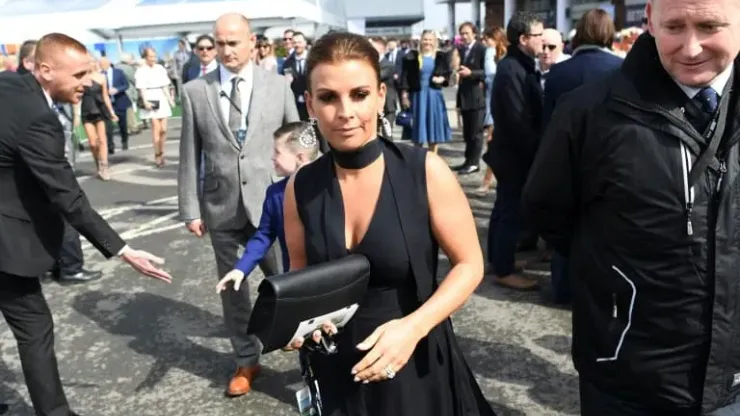London (AFP) – A London judge on Friday gave initial backing to Rebekah Vardy in her libel case against Coleen Rooney, in a legal battle over an Instagram post by the two footballers’ wives.
The women, both prominent “wives and girlfriends (WAGs)” of the England team, have locked horns over accusations about the leaking of private details to The Sun newspaper.
In a ruling, High Court judge Mark Warby ruled that Rooney had clearly accused Vardy of leaking private Instagram posts to tabloid.
Rooney is the wife of former Manchester United star Wayne Rooney, while Vardy’s husband Jamie plays for Leicester City. Vardy has also appeared on several reality shows.
Last year. Rooney wrote she had gradually narrowed down access to her private Instagram after information appeared in the newspaper and deduced that Vardy’s account was behind it.
Her online sleuthing won praise from followers, who nicknamed her “Wagatha Christie.”
But Vardy denied any guilt, saying others could access her account and launched libel proceedings.
She said she received “very high levels of public and abuse after ridicule” after the post appeared and feared she would have a miscarriage with stress.
Rooney’s lawyer argued at an initial hearing on Thursday that her viral post had blamed Vardy’s account for leaks, rather than her personally.
But judge Mark Warby ruled that an ordinary reader would understand Rooney’s conclusion — “It’s …….. Rebekah Vardy’s account” — as identifying Vardy as the “wrongdoer”.
Rooney’s post did not suggest anyone except Vardy could have been involved, he added.
He said he “substantially” agreed with Vardy that the post implied she had “consistently and repeatedly betrayed” Rooney’s trust.
Warby ordered Rooney to pay almost £23,000 ($31,000, 26,000 euros) in initial costs.
Rooney’s spokesman said after the ruling that her position had not changed and insisted Vardy had a “relationship” with The Sun and its “Secret Wag” column.
The court heard that both Rooney and Vardy had agreed to a delay until February so they could make a final attempt at resolving their differences without going to a full trial.
200+ Channels With Sports & News
- Starting price: $33/mo. for fubo Latino Package
- Watch Premier League, Women’s World Cup, Euro 2024 & Gold Cup
The New Home of MLS
- Price: $14.99/mo. for MLS Season Pass
- Watch every MLS game including playoffs & Leagues Cup
Many Sports & ESPN Originals
- Price: $10.99/mo. (or get ESPN+, Hulu & Disney+ for $14.99/mo.)
- Features Bundesliga, LaLiga, Championship, & FA Cup
2,000+ soccer games per year
- Price: $5.99/mo
- Features Champions League, Serie A, Europa League & Brasileirāo
175 Premier League Games & PL TV
- Starting price: $5.99/mo. for Peacock Premium
- Watch 175 exclusive EPL games per season






